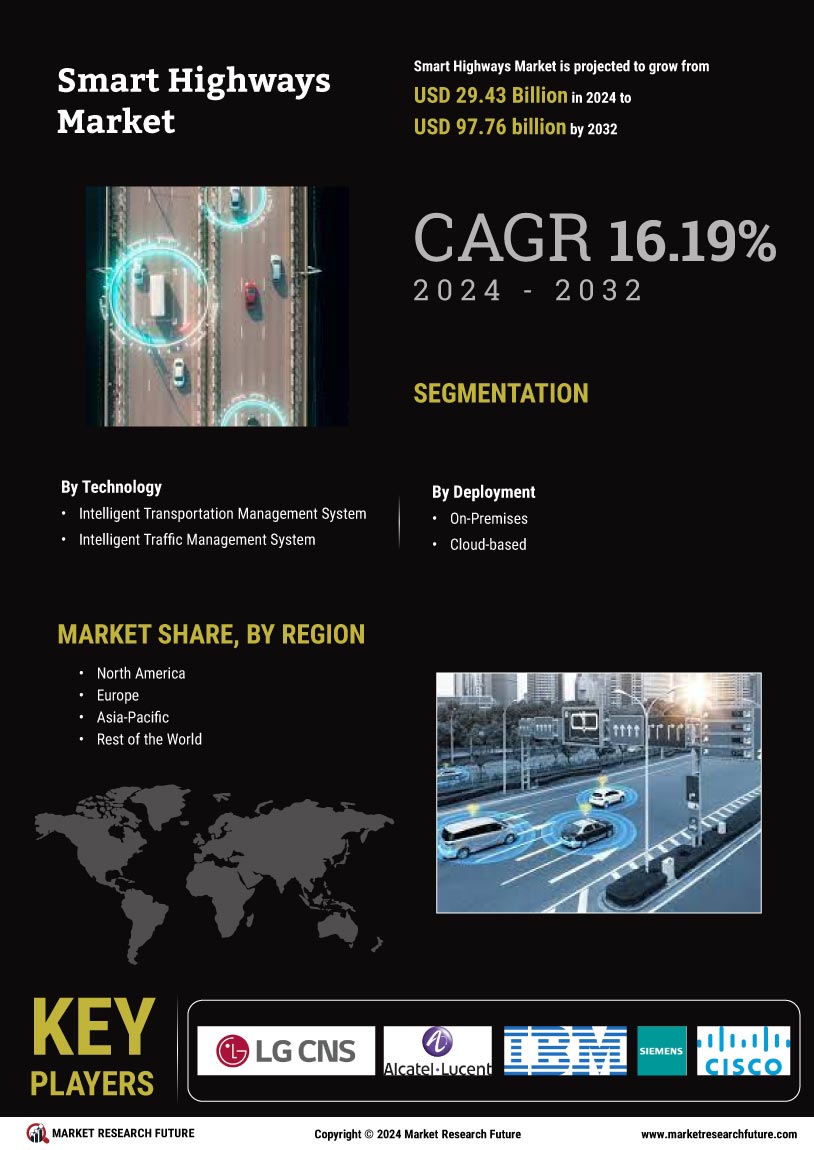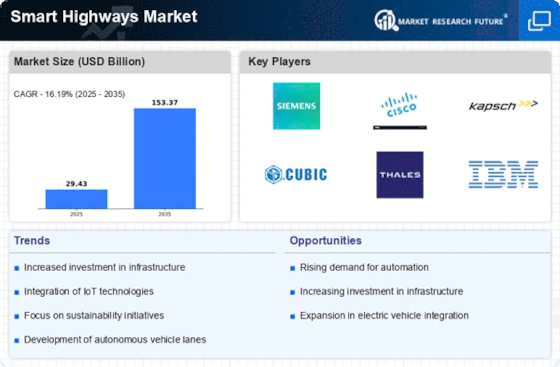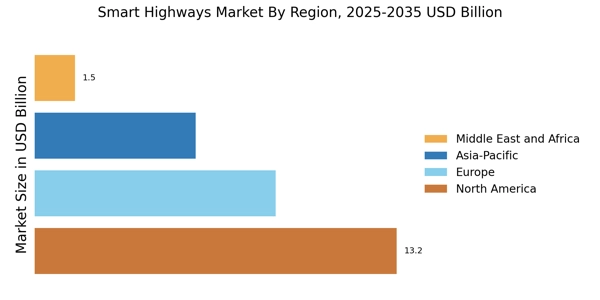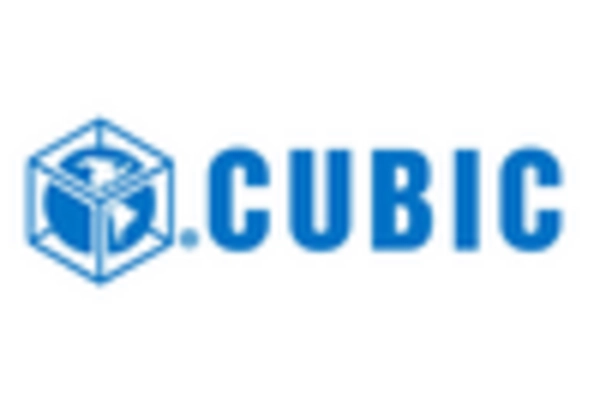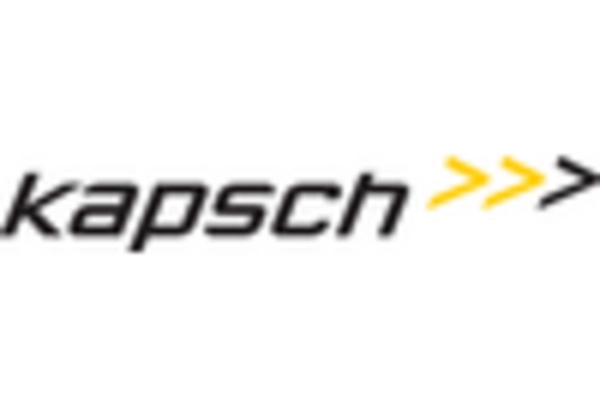Integration of Smart Technologies
The integration of smart technologies is a pivotal driver for the Smart Highways Market. Innovations such as Internet of Things (IoT) devices, artificial intelligence, and big data analytics are being increasingly adopted to enhance highway infrastructure. These technologies enable real-time monitoring of traffic conditions, weather, and road safety, allowing for proactive management and maintenance. The market is projected to grow as more jurisdictions implement smart technologies to improve operational efficiency and safety. Furthermore, the integration of these technologies can lead to cost savings in maintenance and operations, making smart highways an attractive investment for both public and private sectors.
Focus on Reducing Carbon Emissions
The Smart Highways Market is increasingly driven by the global focus on reducing carbon emissions. Governments and organizations are prioritizing sustainable transportation solutions to combat climate change. Smart highways equipped with energy-efficient technologies, such as solar-powered lighting and electric vehicle charging stations, are becoming essential components of this strategy. Studies indicate that smart highway systems can reduce vehicle emissions by up to 20% through improved traffic flow and reduced idling times. As environmental regulations tighten, the demand for smart highway solutions that contribute to sustainability goals is likely to rise, further propelling market growth.
Rising Demand for Connected Vehicles
The increasing prevalence of connected vehicles is significantly influencing the Smart Highways Market. As more vehicles become equipped with advanced connectivity features, the need for highways that can support these technologies grows. Connected vehicles rely on real-time data exchange with infrastructure to enhance navigation, safety, and overall driving experience. Market analysis suggests that the number of connected vehicles is expected to surpass 500 million by 2030, creating a substantial demand for smart highway systems that can facilitate this connectivity. This trend not only drives technological advancements but also encourages collaboration between automotive manufacturers and infrastructure developers.
Increased Investment in Infrastructure
Investment in infrastructure is a key driver for the Smart Highways Market. Governments and private entities are recognizing the necessity of modernizing existing roadways to accommodate growing populations and vehicle numbers. Reports indicate that infrastructure spending is projected to reach trillions of dollars over the next decade, with a significant portion allocated to smart highway initiatives. This investment is aimed at integrating advanced technologies such as vehicle-to-infrastructure communication and smart sensors, which enhance road safety and efficiency. As funding becomes available, the market is likely to see accelerated growth, fostering innovation and development in smart highway solutions.
Advancements in Traffic Management Systems
The Smart Highways Market is experiencing a surge in demand due to advancements in traffic management systems. These systems utilize real-time data analytics and artificial intelligence to optimize traffic flow, reduce congestion, and enhance safety. According to recent studies, the implementation of smart traffic signals and adaptive traffic control systems can lead to a reduction in travel time by up to 30%. This efficiency not only improves the overall driving experience but also contributes to lower emissions, aligning with environmental goals. As urban areas continue to grow, the need for effective traffic management becomes increasingly critical, driving investments in smart highway technologies.
